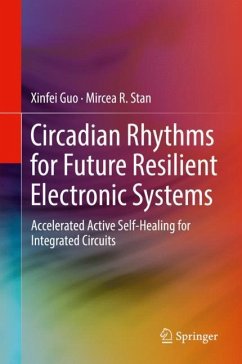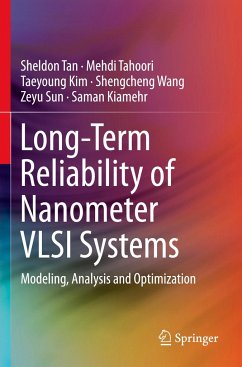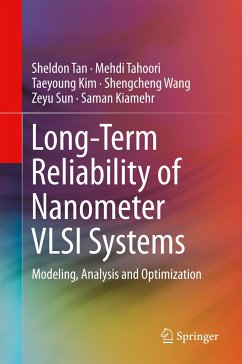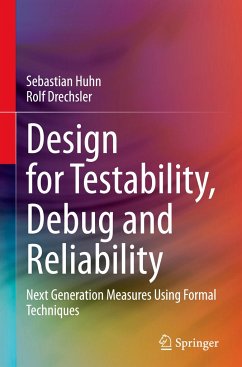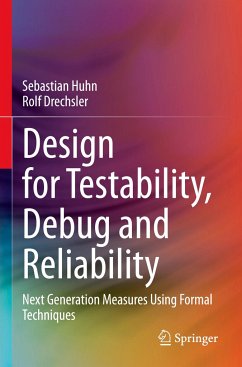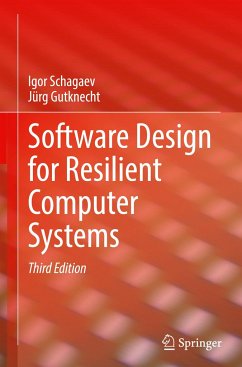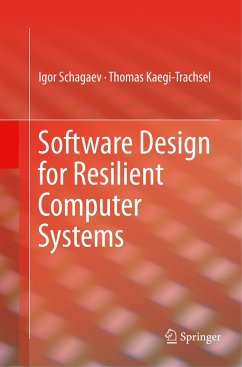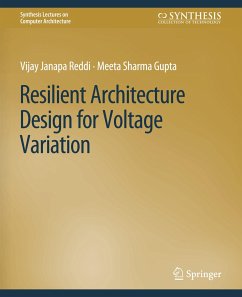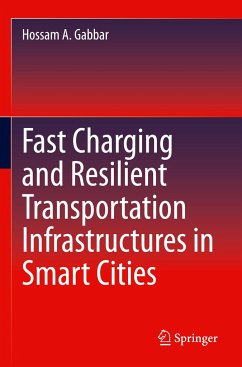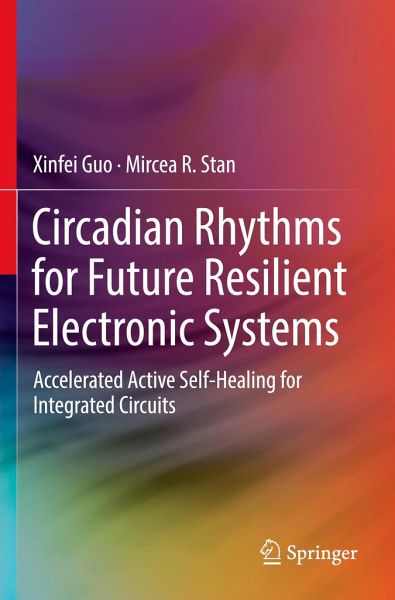
Circadian Rhythms for Future Resilient Electronic Systems
Accelerated Active Self-Healing for Integrated Circuits
Versandkostenfrei!
Versandfertig in 6-10 Tagen
76,99 €
inkl. MwSt.
Weitere Ausgaben:

PAYBACK Punkte
38 °P sammeln!
This book describes methods to address wearout/aging degradations in electronic chips and systems, caused by several physical mechanisms at the device level. The authors introduce a novel technique called accelerated active self-healing, which fixes wearout issues by enabling accelerated recovery. Coverage includes recovery theory, experimental results, implementations and applications, across multiple nodes ranging from planar, FD-SOI to FinFET, based on both foundry provided models and predictive models.Presents novel techniques, tested with experiments on real hardware;Discusses circuit and...
This book describes methods to address wearout/aging degradations in electronic chips and systems, caused by several physical mechanisms at the device level. The authors introduce a novel technique called accelerated active self-healing, which fixes wearout issues by enabling accelerated recovery. Coverage includes recovery theory, experimental results, implementations and applications, across multiple nodes ranging from planar, FD-SOI to FinFET, based on both foundry provided models and predictive models.
Presents novel techniques, tested with experiments on real hardware;Discusses circuit and system level wearout recovery implementations, many of these designs are portable and friendly to the standard design flow;Provides circuit-architecture-system infrastructures that enable the accelerated self-healing for future resilient systems;Discusses wearout issues at both transistor and interconnect level, providing solutions that apply to both;Includes coverage ofresilient aspects of emerging applications such as IoT.
Presents novel techniques, tested with experiments on real hardware;Discusses circuit and system level wearout recovery implementations, many of these designs are portable and friendly to the standard design flow;Provides circuit-architecture-system infrastructures that enable the accelerated self-healing for future resilient systems;Discusses wearout issues at both transistor and interconnect level, providing solutions that apply to both;Includes coverage ofresilient aspects of emerging applications such as IoT.





